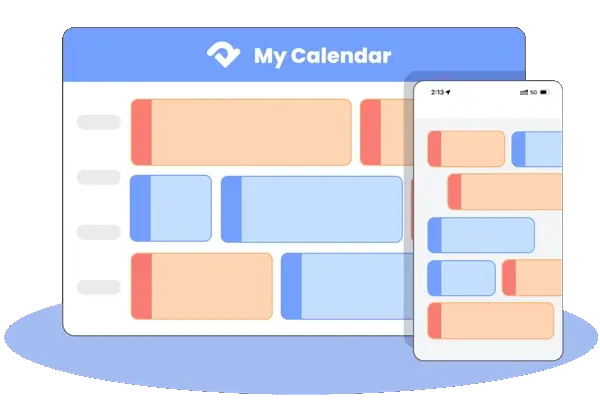Every hotelier faces the challenge of maximizing revenue and occupancy. In the complex world of pricing and promotions, one strategy stands out due to its simplicity and effectiveness: the Minimum Length of Stay (MLOS). This kind of strategy, when used correctly, can be a game-changer for your property’s profitability and operational efficiency.
This article will guide you through MLOS. Explore a sophisticated, data-driven approach to implementing MLOS that truly maximizes your property’s profitability.
What Is Minimum Length of Stay (MLOS)?
At its core, MLOS is a booking restriction that requires a guest to stay for a set number of nights. It's not a price adjustment, but rather a simple rule you apply to a specific room type or date. For instance, you might set a three-night minimum stay for all reservations checking in on a Friday night of a holiday weekend.
Hotels use an MLOS strategy to optimize room availability during peak periods. It's designed to prevent fragmented bookings and ensure your property’s inventory is used to its full potential, especially during periods of high demand.
The Strategic Value of MLOS for Your Hotel
Implementing an MLOS policy isn't just about filling rooms; it's about making every booking work harder for your bottom line. Here are the key strategic benefits:
1. Boosting Revenue and Profitability
This is the most obvious benefit. By extending the average length of a guest's stay, you significantly increase the total revenue generated from each booking. A single reservation for a five-night stay is far more profitable than five separate one-night stays, even if the daily rate is the same. This approach is particularly effective for capitalizing on peak demand. During a major concert or a city-wide convention, you can set a minimum stay requirement to ensure you capture the full value of the event rather than just a single night’s booking.
2. Optimizing Operational Efficiency
Consider the hidden costs of one-night stays. Each new guest requires a full room turnover: cleaning, fresh linens, and front desk check-in and check-out procedures. These tasks consume significant labor hours and resources. By encouraging longer stays through MLOS, you reduce the frequency of room turnovers. This directly translates to lower operational costs for housekeeping and front desk staff, allowing your team to focus on providing an exceptional guest experience instead of constantly managing arrivals and departures.
3. Gaining Strategic Inventory Control
MLOS allows you to be more selective with your inventory during high-demand periods. It prevents the creation of "orphan" or "unbookable" single nights. Imagine a four-night event from a Monday to a Thursday. If you allow a guest to book just the Monday and Tuesday, you're left with a two-night gap that might be harder to sell. By setting a four-night minimum stay, you ensure your inventory remains intact and can be sold as a single, valuable block. This level of control is essential for a truly effective revenue strategy.
How to Implement MLOS Effectively
Using MLOS isn't a one-size-fits-all solution. It requires a thoughtful, data-driven approach. The key is to apply the policy where and when it makes the most sense.
1. Target High-Demand Periods
This is the classic use case. Apply MLOS during holidays, local festivals, major sporting events, or concerts. If your city is hosting a three-day conference, setting a three-night MLOS ensures you capture the full value of the event's demand. Your competitors might be selling individual nights, but you’ll be securing longer, more profitable bookings.
2. Manage Weekend Bookings
Weekends are a common challenge for hotels. Guests often book a Friday or Saturday night, leaving the other night unsold or as a fragmented stay. An MLOS of two or three nights can be highly effective in bundling Friday and Saturday nights together, or even extending the stay to include a quieter Sunday night. This stabilizes your weekend occupancy and boosts overall revenue.
3. Leverage Technology and Data
Never apply an MLOS policy without consulting your data. Your Property Management System (PMS) and Revenue Management System (RMS) are your best friends here. Analyze past booking trends to identify typical lengths of stay for different periods. Look at your competitors’ pricing and restrictions. Technology can automate MLOS rules based on real-time demand signals, ensuring your policy is always optimized for maximum profitability. This data-driven approach is what separates a guessing game from a sophisticated revenue strategy.
Navigating the Challenges of MLOS
While MLOS is a powerful tool, it’s not without risks. An overly rigid policy can turn away guests and reduce your hotel’s visibility on Online Travel Agencies (OTAs).
1. The Risk of Lost Bookings
The most significant downside is turning away potential guests who only need a short stay. A business traveler flying in for a one-day meeting won't be able to book with you if you have a three-night MLOS.
2. Solutions for MLOS Challenges
The answer is simple: flexibility and intelligence.
- Be Strategic, Not Universal: Apply MLOS only to specific dates or weekends where demand is guaranteed to be strong. Don't use it on a quiet Tuesday in the off-season.
- Layer Your Restrictions: Consider combining MLOS with other pricing strategies. For example, you could offer a discounted rate for guests who meet the MLOS requirement. This makes the policy more attractive and frames it as a value proposition rather than a restriction.
- Communicate Clearly: Ensure your MLOS policy is visible and well-explained on your hotel website and all booking channels. Transparency helps manage guest expectations and reduces frustration.
Final Thoughts
Minimum Length of Stay is not a one-size-fits-all solution, but a dynamic revenue management tool that requires careful application. For a hotelier, mastering MLOS means taking control of your inventory and shifting from reacting to demand to proactively shaping it. By using data, understanding your market, and applying MLOS with strategic intelligence, you can unlock a new level of profitability and operational excellence for your property.

